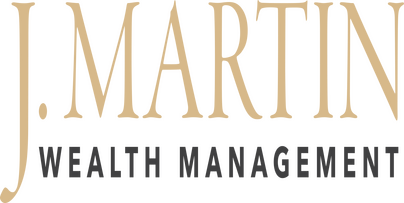Investing is a complex process that requires careful thought, strategy, and an understanding of various factors that could influence your portfolio's performance. Many investors understand the significance of market trends, economic cycles, and changing consumer behavior. However, politics is another The 401(k) plan is an excellent way for working Americans to save for retirement. For many, hitting the maximum contribution limit is a goal that many work toward to reap the benefits of saving tax-deferred. But what happens when you've maxed out your 401(k) contributions and want to continue saving for an independent and comfortable retirement?
Maxing out your 401(k) is a significant achievement toward securing an independent financial future. However, several other investment strategies offer tax advantages and asset accumulation potential so you can continue investing toward your retirement savings goal. Here are some strategies to consider investing in next.
Individual Retirement Account (IRA)
One of the most common options when you've maxed out your 401(k) is contributing to an Individual Retirement Account (IRA). An IRA offers similar tax benefits to 401(k), where your contributions grow tax-deferred.
Roth IRA
The Roth IRA differs significantly from traditional IRAs and employer-sponsored 401(k)s, which are funded with after-tax dollars. The benefit of a Roth IRA comes at retirement, as you are able to withdraw funds, both contributions and accumulation, without incurring additional taxes, which is beneficial if you anticipate being in a higher tax bracket upon retirement.
To qualify for a Roth IRA, your income must fall within certain limits, which are adjusted annually. Talk to a financial professional to determine if your income falls within the IRS limits if you are considering a Roth IRA.
Taxable brokerage account
A taxable account is another saving strategy to consider when you've maxed out your 401(k). Although these accounts don't offer the same tax benefits as 401(k)s and IRAs, they provide increased flexibility in withdrawal times and without penalties. A balanced mix of stocks, bonds, and mutual funds in brokerage accounts can offer substantial accumulation over time.
Health Savings Account (HSA)
An HSA is another great supplemental retirement saving strategy. These accounts are used with high-deductible health plans, giving individuals the advantage of triple tax benefits: tax-deductible contributions, tax-free growth, and tax-free withdrawals for qualified medical expenses. After age 65, non-medical withdrawals are taxed at the regular income tax rate, turning the HSA into a supplemental retirement income account.
Alternative investments
Suppose you have already maxed out your 401(k) and these above savings strategies. In that case, it may be time to consider alternative investment strategies, such as buying a rental property or investing in real estate investment trusts (REITs) or private investments.
Alternative investments can provide a steady source of income and potential appreciation. However, it's vital to conduct due diligence by consulting financial and tax professionals to ensure these strategies are appropriate for your situation as they come with risks.
Whether you invest in an IRA, HSA, a taxable brokerage account, real estate, or private investments, the key is maintaining a diversified portfolio to spread risk and increase growth and asset accumulation opportunities. Consider enlisting the help of a financial professional to help navigate these decisions in line with your specific circumstances and objectives.rucial aspect that often needs to get the attention it merits. The link between politics and your investments is more profound than one might initially expect.
To truly grasp how politics impacts investment performance, it's necessary to consider multiple dimensions. Elections, policy changes, geopolitical events, and even political rhetoric can influence economic activities, indirectly affecting the financial markets. Thus, as an investor, understanding the correlation between these domains becomes critical in making informed strategic decisions.
One of the most immediate ways politics can affect investment performance is through policy formulation and implementation. Governments worldwide use fiscal and monetary policies to manage their economies. These policies can change significantly depending on whether the ruling party is pro-business or pro-labor or leans towards fiscal conservatism or liberalism. For instance, a government may implement favorable tax cuts for businesses, boosting stock markets and positively impacting shareholders.
Additionally, political upheavals and changes can lead to market volatility. Uncertainty relating to elections, referendums, diplomatic relations, and potential policy shifts can cause investors to panic, leading to short-term fluctuations in the market. Market fluctuation was evident during the Brexit referendum when the uncertainty related to the outcome increased market instability.
However, while politics can undoubtedly impact the investment environment, financial analysts agree it should not be the sole determinant of investment decisions. While political events can exert short-term effects, economic fundamentals and market dynamics have a more significant and long-lasting impact on investment returns.
Investors must maintain a long-term perspective and diversify their portfolios across different asset classes and geographic locations. Diversification helps to spread risk, thereby protecting against potential negative impacts from political changes or instabilities in a particular region or market.
Moreover, investors should stay informed about political developments and understand how they could impact their investments. However, this doesn't necessarily mean closely following day-to-day political events but understanding the broader political climate, fundamental policy changes, and potential geopolitical developments that could affect the economic landscape.
In conclusion, while politics shapes the investment landscape, investing is a long-term activity; any short-term disturbances caused by politics likely will iron themselves out over time. However, staying informed and understanding the broader political landscape can aid in making suitable investment decisions. As always, diversification remains key, helping protect against any risks arising from political dynamics.

